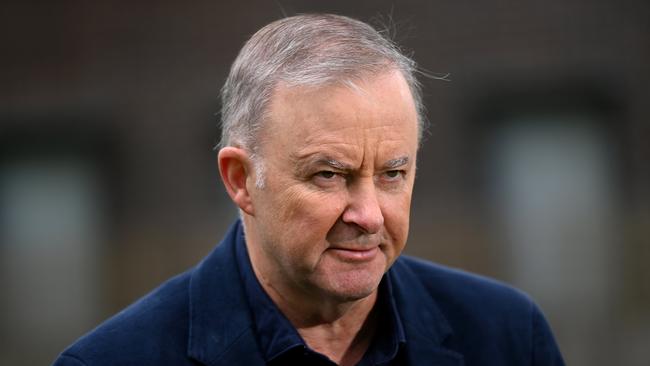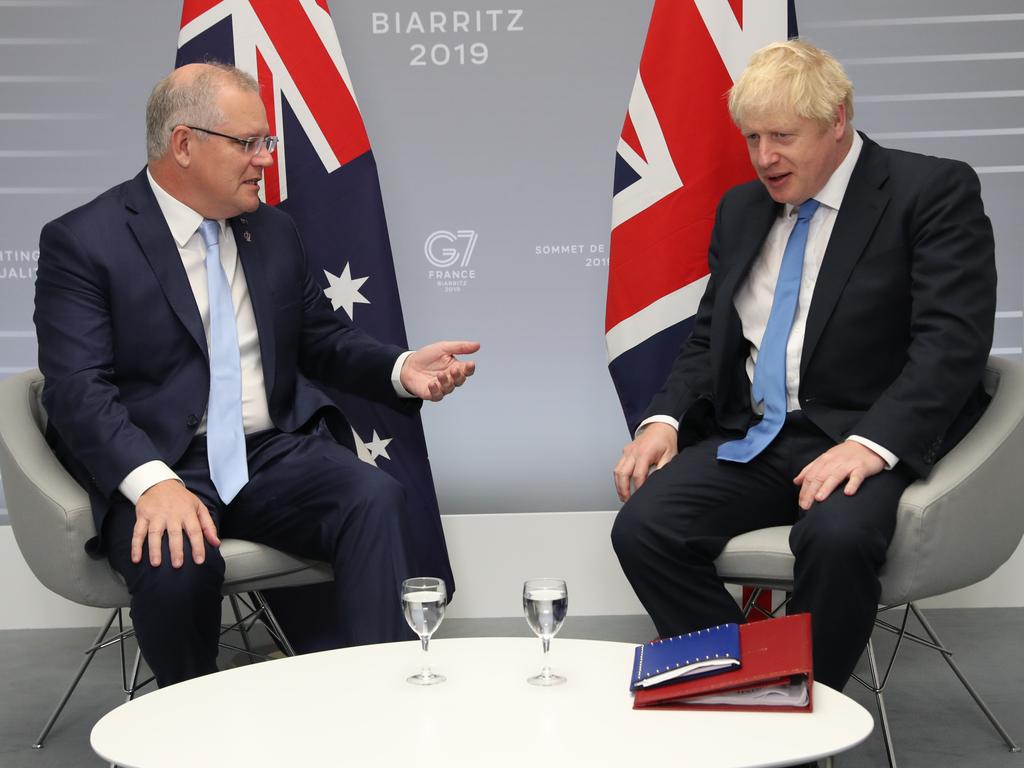It’s health vs the economy as sides gird for battle

That the scare campaign may be detached from reality doesn’t necessarily mean it will fail, however. In 2016, Malcolm Turnbull almost lost his majority because of entirely false claims that the Coalition planned to abolish Medicare. The political damage the claims did to Turnbull played out across the following two years. Turnbull’s electoral failures emboldened his critics within the Liberal Party, ultimately costing him the prime ministership.
Behind the scenes, Labor strategists are clear about their plans. They see an opportunity to turn the next campaign into one focused on post-pandemic management and they believe Mediscare 2.0 can counter Coalition attacks on Labor’s economic management credentials, where the government wants to pitch a tent and focus attention.
Labor also sees a Mediscare 2.0 fear campaign as fitting in neatly alongside its criticisms of hotel quarantine and the slow vaccination rollout.
To be sure, both sides of politics get what is coming to them, contending with inaccurate fear campaigns. They both do it and they are both shameless about it. It is almost a given that for a political leader to be successful they must both deploy and repel such attacks.
John Howard repelled claims his GST would wreak havoc on middle Australia. In turn he brought Labor down time and time again with negative attacks on the opposition’s penchant for debt.
Strangely, Howard doesn’t seem to share such concerns – not publicly anyway – about the incumbent Coalition government, even though it continues to break new records accumulating debt.
Ultimately it was an anti-Work Choices scare campaign that brought Howard undone. While there was some truth in the union attack ads in 2007, there were many false claims made along the way.
The changes now proposed for the Medicare Benefits Schedule are significant, but they are hardly akin to tearing apart the health safety net on which Australians rely. In fact most of the changes to rebates will leave Australians less out of pocket, not more. And the adjustments – nearly 1000 proposals all up – are long overdue.
For more than a decade both sides of politics have cowered, unwilling to implement policy changes such as those announced now, precisely because implementing such changes results in winners and losers. The losers generally have louder voices.
It is strange to see the Morrison government prepared to tackle something so contentious. I tend to think of this government as lacking courage, not overflowing with it. Perhaps what’s on the table skipped Scott Morrison’s attention in cabinet. With all the moving parts attached to managing the nation through the pandemic and beyond it is entirely possible these adjustments got cabinet approval with little discussion.
Ironically, the fact what is on the table isn’t all that political could become the reason it can be exploited politically by Labor.
The Prime Minister has good political instincts, so much so that had he contemplated the risks attached to selling major Medicare changes while trying to win a fourth term for the Coalition he likely would have walked away from what has been recommended. Unless he thought he could implement it quickly (and quietly) and move the hell on.
The reason the changes proposed are so necessary is because medicine has come a long way in the past decade.
New technology and techniques require adjustments to the priorities of government assistance, in the same way new laws have been necessary to confront social media companies, for example. These Medicare proposals just aren’t political in nature.
For once the process that led to what has been put forward represented good policy development. Political interference wasn’t an issue on this occasion. There was significant consultation with doctors, scholars, clinical specialists and even consumer advocates. An independent taskforce was set up, taking in various stakeholders and presenting its findings to government late last year. What it suggested is what the government seeks to implement.
The failure has been in announcing the planned implementation of the reforms now, nearly six months after they were handed to government, with a starting date in less than one month (July 1).
Understandably, that has spooked many doctors and health professionals, who are still trying to get their collective heads around how the changes will affect their business models. Which is why the Australian Medical Association has called on the government to delay implementation of the reforms to give everyone more time to understand the impact the changes will have. They don’t want the changes scrapped because they are an assault on Medicare, as Labor claims. The AMA just wants what is proposed to be understood fully by its members.
The catch-22 for the government is that delaying the implementation risks it becoming bad political management. A drawn-out process of building awareness before implementation risks running up against the timetable for an election campaign. It also provides opportunities for the opposition to target the areas in which subsidies will be lost (hip replacements is one), rather than those receiving more support (such as improved ways of measuring blood pressure).
The government can’t win a political argument if it has to fight line by line for the reforms, and Labor simply can run a broad message that the reforms “gut Medicare”.
You can see the campaign ads now. You can see Anthony Albanese thriving, delivering the messaging over and over. You can see Morrison losing his temper combating the attacks.
The problem for the Coalition is that this scare campaign is already under way. If it simply scraps the proposals, not only is it failing the Medicare system but doing so won’t put an end to Labor’s attacks anyway. If anything Labor would inflate its claims, arguing that after the election the Coalition had secret plans to gut Medicare, pointing to the shelved ideas that already have been put out there.
Which means the battle lines for the next election increasingly are being set in stone. Labor will go after the government on Medicare, quarantine and vaccinations, hoping its own historical trustworthiness on health policy will tip the debate in its favour. The Coalition, in contrast, will target the economy, as it usually does, hoping for the same dominance and voter trust in that sphere as it seeks to blast Labor’s credibility to take over the reins of Treasury.
Peter van Onselen is a professor of politics and public policy at the University of Western Australia and Griffith University.






Labor is gearing up for a “Mediscare 2.0” campaign of fear in the lead-up to the next election but, just like back in 2016, the basis for the negative spin is patchy at best.